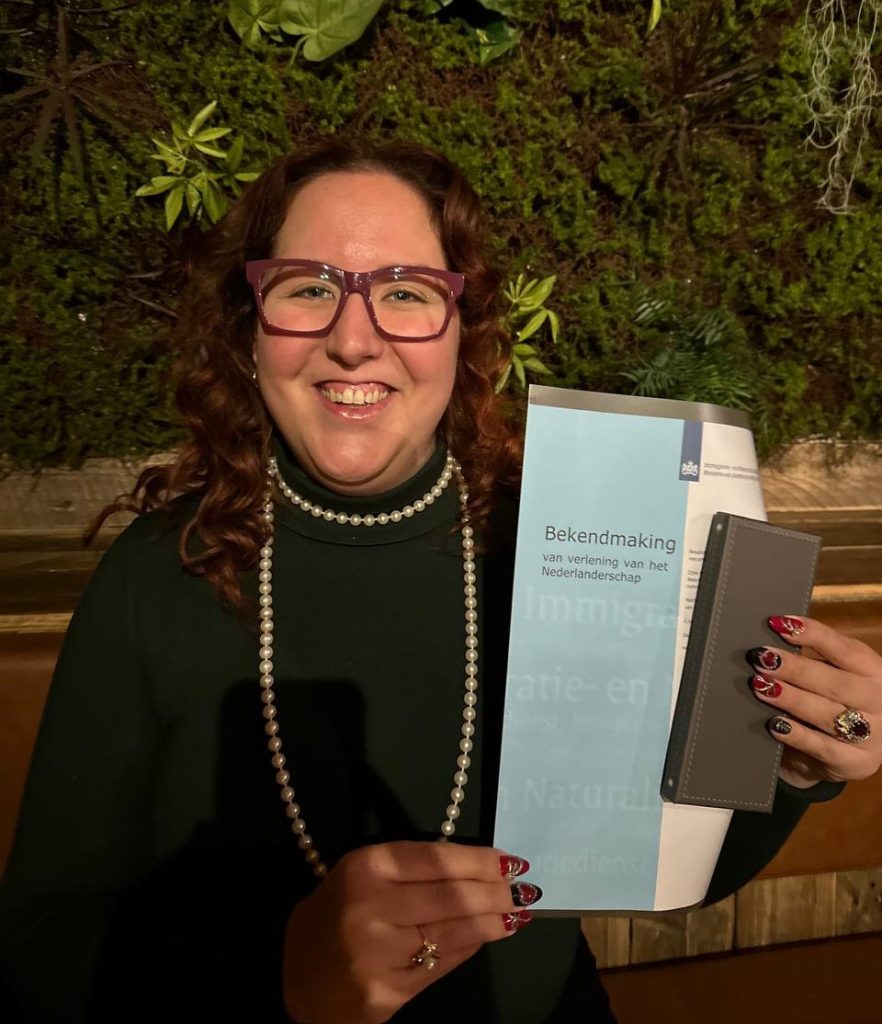It’s Official! I’m a Dual Dutch-American Citizen. Now What?
After 6 years of living in the Netherlands, I am finally a Dutch citizen. And I got to keep my American citizenship. So that means I’ll now have two passports and belong to two countries. But what does being a dual citizen actually mean? What are the pros and maybe cons of having two passports? This entire blog post is based on my experience and knowledge of the process and system. Always go to the source when looking for information that can change the course of your life.
This blog post is sponsored by MyExpatTaxes.
How long did it take to get Dutch citizenship? What did I need to do?
Well, I had to be in the Netherlands for a minimum of five years in order to be eligible to apply for Dutch citizenship. But I didn’t want to give up my American citizenship. So, I did end up waiting a little longer to apply until my husband and I got married.
I applied in mid-July of 2024 and got a letter saying the king approved my citizenship in October of 2024. However, in order for it all to be official and be able to apply for a passport, I had to participate in the naturalization ceremony. That happened in late January 2025. So, I’ll get my Dutch passport in February of 2025.
Living here for five years isn’t enough, though. I first had to complete all the immigration language and history/culture exams, participate in an integration class, and prove that I could find a job in the Netherlands.
The last part was waived since I have a registered business. It’s called Soreh Writes. I work as a freelance writer, Dutch-to-English translator, and content creator. I had to do all the integration stuff before I could even consider applying for citizenship.
Am I even allowed to have two passports?
When I posted about potentially getting Dutch citizenship, many people told me that I wouldn’t be allowed to have two passports. But that isn’t technically true. Because I married a Dutch man, I am allowed to keep my American citizenship and get Dutch citizenship as well.
Dual citizenship isn’t always allowed, though. I always recommend going to the source for information instead of taking someone’s experience as law. So check out the government website for the exact rules.
Will our kids have dual citizenship?
One of the questions my followers on Instagram asked is if our kids will be dual citizens. The answer is probably. It is my understanding that if I have children, my children will have both Dutch and American citizenship. However, my husband and I are child-free by choice. So it’s not something we will need to worry about.

Do you have to pay taxes in two countries?
The answer is it’s complicated. The USA is one of the only countries in the world that double taxes its citizens. However, there are tax exemptions. So I have not had to pay taxes in two countries. It doesn’t matter if you’re a dual citizen or just an American citizen living abroad; Americans need to declare their income to the US government in addition to the government where they have residency.
So, I’ve had to file my taxes in the USA and the Netherlands every single year of living in the Netherlands, even before I became a dual citizen.
MyExpatTaxes is an incredible company that helps US citizens file their US taxes abroad. They also help with any tax questions, including if and when you have to pay taxes in the USA. So, for all of your double taxation taxes, reach out to MyExpatTaxes. I’ve used them for the last few years, and I’ll continue to use them this year.
What are the advantages of dual citizenship?
Passport privilege is not something many people think about. But it’s a real thing. As an American who moved to the Netherlands, my then-boyfriend, now husband, had to sponsor my visa. That means that he had to make enough money to support us both financially. The fact that I worked didn’t matter. So, if he lost his job, my visa would have been at risk. We were also not allowed to ever apply for certain subsidies if we needed them because he was legally responsible for financially supporting both of us.
The visa I was on was only valid for 5 years. So, every 5 years, I had to renew it. I also was not allowed to live outside of the Netherlands for more than 6 months a year without losing my right to live in the Netherlands.
In addition, if we decided to move to any other EU country, I’d have to start from scratch because every country has its own rules for foreigners moving there. Now, I can live anywhere in the EU without any bureaucratic nonsense with my Dutch citizenship.
I am now allowed to vote in the Netherlands. And yes, I can still vote in US elections.

Traveling Is So Much Easier
I no longer have to wait in the foreigners’ line at EU airports. So, instead of waiting ages to get out, I can now go through automated passport control or the fast EU line, depending on the airport.
Although the American passport is strong, the Dutch passport is stronger. So, there are more countries I can travel to that are visa-free or just get an e-visa. And my husband and I never have to apply for different visas when traveling to the same countries because we both have the same citizenship.
Why keep my American citizenship?
Getting a visa to live and work in the USA is notoriously hard. It’s expensive, it can take years, and even if you’re granted residency in the USA, it doesn’t mean you’re allowed to work there. The rules are stringent and complicated. So that means if I ever want to live in the US for any reason, if I were to give up my US citizenship, I’d have to apply for a visa. I also still have friends and family in the USA.
It is always to your advantage to be able to legally work, live, and travel to as many different countries as possible. So, giving up my American citizenship is not something I will do anytime soon. Being a dual Dutch-American citizen makes my life easier. So why wouldn’t I welcome that?
For more Dutch living, freelancing, travel, and other content, follow me on Instagram, TikTok, Facebook, and YouTube.
The featured photo was taken by Amatsooni Photography.
What questions do you have that I didn’t answer in this blog post?

I have dual citizen ship. I was born in USA by Dutch immigrants. Moved back at 9 years old. Went to school, graduated college, worked and then moved back at 25 to USA. I am getting pension letters from ahold at 65 and wonder when or how I can file for AOW living here in USA ? Do you know a business who can help me ?
Thanks. Great article
It all depends how long you have lived in the Netherlands after 1957, for every year you get 2% of the old age pension and you don’t even have to work, just live in the country after that date, and when turning 67 just apply for it with of course documentation that you lived in the country, success!!